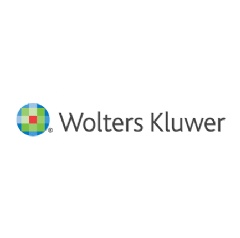Wolters Kluwer Aims to Fight Sepsis with Educational Resources and Technologies that Help Clinicians Deliver Best Care to Patients and Reduce Alert Fatigue
Sepsis is the leading cause of non-cardiac death in intensive care units today and is one of the leading causes of death globally. Wolters Kluwer Health, through its educational resources, guidelines and evidence-based clinical decision support (CDS) solutions, is helping clinicians improve outcomes through prevention, detection, and treatment of sepsis. Using innovative surveillance tools, healthcare organizations can now warn caregivers of patients at risk of sepsis expediting appropriate care, while minimizing alert fatigue and false alerts.
“Through our continuous focus on new guidelines, technologies and innovations, Wolters Kluwer is making significant strides to reduce mortality rates and treatment costs in combating sepsis,” said Diana Nole, CEO, Wolters Kluwer Health. “As September is Sepsis Awareness Month, we are pleased to support caregivers on the frontline with the latest standards of care, tools and technologies to help them reduce this medical emergency.”
Better Detection Stops Alert Fatigue and Saves Lives
POC Advisor™, Wolters Kluwer’s latest surveillance solution, has been shown to reduce the number of deaths while reducing the cost of care associated with sepsis. A Journal of the American Medical Informatics Association (JAMIA) study found that this new technology provided the sensitivity and accuracy to predict patient cases and warn clinicians, effectively reducing sepsis mortality by 50 percent and patient readmissions by more than 30 percent.
Delivering CDS interventions to the point of care has proven to be a significant challenge for many hospitals and health systems. One study found that clinicians ignore EHR safety notifications 49 to 96 percent of the time, primarily due to alert fatigue. POC Advisor™ combines electronic clinical surveillance and CDS with workflow and procedural changes, providing clinicians with a user-friendly, multi-tiered solution based on Wolters Kluwer’s trusted medical evidence-based solutions.
Standardizing Care Practices Among Healthcare Professionals
Equally important is the need to have all members of the interdisciplinary healthcare team possess the necessary skills to recognize and treat early signs of sepsis, using the latest evidence-based practice guidelines to inform patient care and interventions, and to educate patients and their families on post-sepsis syndrome.
Wolters Kluwer Health helps nurses close the knowledge gap and improve outcomes in patients with sepsis by providing quick access at the bedside to the latest diagnosis and treatment guidelines through Lippincott Solutions. In addition, Lippincott NursingCenter® site brings together the latest evidence-based articles and educational resources on sepsis to ensure that all nurses have access to critical resources to improve outcomes in patients with sepsis and reduce errors and care variability.
Further, Wolters Kluwer Health and the Sepsis Alliance are partnering to support awareness of sepsis as a medical emergency, providing resources for nurses and other healthcare professionals, including a survey on “nursing knowledge gaps” to identify where clinicians need support to understand the latest standards of care.
Additional tools and resources available to help clinicians understand and treat sepsis include:
- Free Access Lippincott NursingCenter®: Sepsis content will be free for the month of September featuring a Subtle Signs of Sepsis Infographic and updated guidelines which address how patients with sepsis should be viewed as having a medical emergency, necessitating urgent assessment and treatment.
- Focus On Sepsis Video: Anne Dabrow Woods, DNP, RN, CRNP, ANP-BC, AGACNP-BC, FAAN, Chief Nurse, Health Learning, Research and Practice, Wolters Kluwer, discusses identification and the first six hours of goal-directed treatment according to current guidelines and definitions.
- Blogpost Sepsis-3: New Definition Impacts Guidelines and Practices
The 2016 revised definition of what qualifies as sepsis received a mixed reception from clinicians. Known as Sepsis-3, it introduced new assessment tools and updated guidelines in hopes of promoting early diagnosis and rapid implementation of treatment. - Ovid® Insights Sepsis Dashboard for quick links to the latest journal articles on sepsis, septic shock, surgical sepsis, sepsis biomarkers, pediatric and neonatal sepsis, among other specialty topics.
About Wolters Kluwer
Wolters Kluwer N.V. (AEX: WKL) is a global leader in information services and solutions for professionals in the health, tax and accounting, risk and compliance, finance and legal sectors. We help our customers make critical decisions every day by providing expert solutions that combine deep domain knowledge with specialized technology and services.
Wolters Kluwer reported 2016 annual revenues of €4.3 billion. The company, headquartered in Alphen aan den Rijn, the Netherlands, serves customers in over 180 countries, maintains operations in over 40 countries and employs 19,000 people worldwide.
Wolters Kluwer Health is a leading global provider of information and point of care solutions for the healthcare industry. For more information about our products and the organization, visit http://www.wolterskluwer.com/
( Press Release Image: https://photos.webwire.com/prmedia/6/213255/213255-1.png )
WebWireID213255
This news content was configured by WebWire editorial staff. Linking is permitted.
News Release Distribution and Press Release Distribution Services Provided by WebWire.
